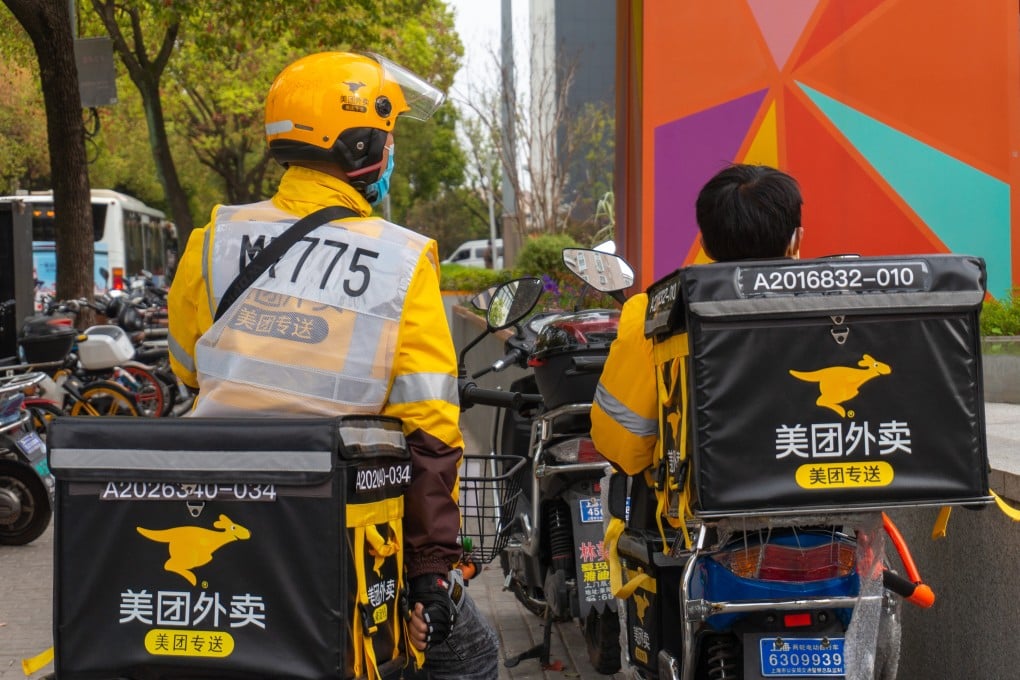Advertisement
China tech crackdown: Meituan, Ele.me, other on-demand delivery providers face dim prospects amid Beijing’s scrutiny, analysts say
- Meituan lost about 20 per cent of its market value over the past two trading days since Beijing directed on-demand delivery providers to cut commission fees
- What is at stake under the Chinese government’s scrutiny is the nation’s vast on-demand food delivery market, which is worth about US$105 billion
Reading Time:3 minutes
Why you can trust SCMP

Chinese on-demand delivery services providers, led by Meituan and Ele.me, face gloomy prospects after Beijing directed these internet platforms to cut the fees they charge restaurants, which has put a cap on their profit margins, according to analysts.
“Since food delivery accounts for a big proportion of these platforms’ revenue, the reduced commission fee would have an impact [on their revenue],” said Zhang Yi, chief executive of market research firm iiMedia.
Beijing-based Meituan, operator of China’s largest food delivery and on-demand local services platform, has already lost about 20 per cent of its market value over the past two trading days since the directive was issued by the National Development and Reform Commission (NDRC) last Friday.
Advertisement
Meituan declined to comment on Monday. Its shares in Hong Kong closed down 3.99 per cent to HK$180.50 on the same day.
Ele.me did not immediately respond to a request for comment. The firm is run by e-commerce giant Alibaba Group Holding, parent of the South China Morning Post.

Internet platforms will follow guidelines to “further lower the service fee standards for catering businesses to help them reduce costs”, according to the NDRC policy directive, part of Beijing’s initiative to help the country’s services sector. It said this move will drive preferential service fees “to catering companies in county-level administrative regions, where middle and high-risk areas are located”.
Advertisement
Select Voice
Choose your listening speed
Get through articles 2x faster
1.25x
250 WPM
Slow
Average
Fast
1.25x